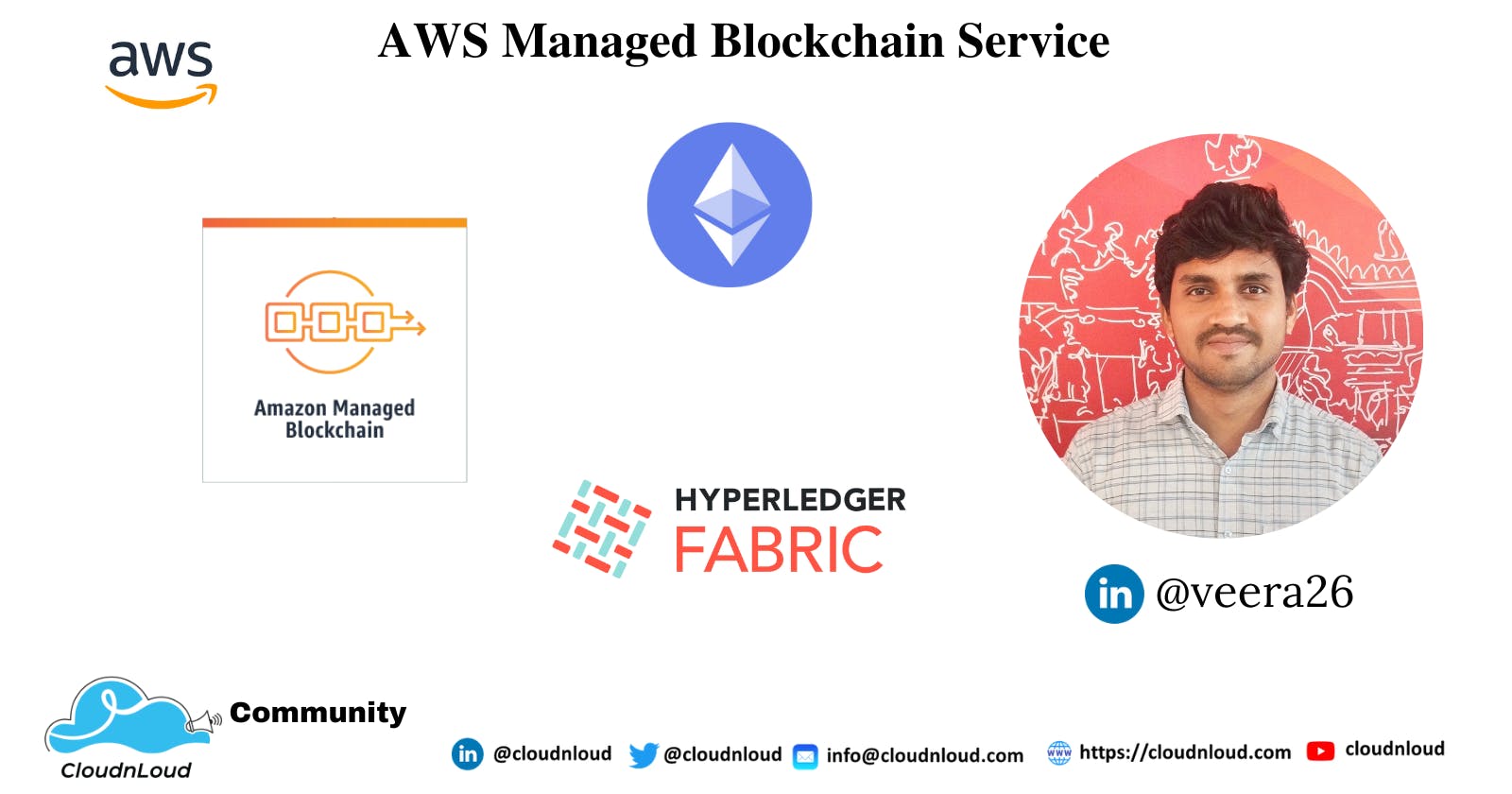Hi everyone,
Do you have any idea about AWS Managed blockchain services and why you should consider them for your business?
Don't have any idea. No issues. Let's discuss on further,
Blockchain technology has the potential to revolutionize many industries, but setting up and managing a blockchain network can be a complex and time-consuming process. That's where Amazon Web Services (AWS) Managed Blockchain comes in.
AWS Managed Blockchain is a fully managed service that makes it easy to create and manage scalable blockchain networks using popular open-source frameworks like Ethereum and Hyperledger Fabric. With AWS Managed Blockchain, you can set up and deploy a blockchain network in a matter of minutes and easily scale it as your needs change.
One of the key benefits of AWS Managed Blockchain is that it takes care of the underlying infrastructure, including the network nodes, storage, and networking. This means you can focus on building your applications and not worry about the maintenance and management of the network.
AWS Managed Blockchain also offers built-in security measures to protect your network, including encryption of data in transit and at rest, secure access controls, and monitoring and logging of network activity.
In addition to its ease of use and security features, AWS Managed Blockchain can be easily integrated with other AWS services, such as Amazon S3 and Amazon Kinesis, to build and deploy decentralized applications. This makes it a powerful and flexible solution for businesses of all sizes.
Another advantage of AWS Managed Blockchain is its flexible pricing model. As a fully managed service, you only pay for the resources you use, such as the number of nodes and the amount of storage you need. This makes it an affordable and scalable solution that can grow with your business.
Features:
Quick setup
Scalability
Network management
Security
Integration with other AWS services
Flexible pricing
I hope, Now You understand AWS-managed blockchain services benefits
Anyways we should know about the basics of Blockchain. Without knowing the basics and fundamentals, we can't go deeper into any technologies.
So, Let's learn some basics of Blockchain
What is the blockchain
A blockchain is a decentralized, distributed database that consists of a series of interconnected blocks of data. It is a digital ledger of transactions that are secured and validated by a network of computers, rather than a central authority.
There are several different types of blockchain networks, including public and private blockchains. Public blockchains, such as Bitcoin, are open to anyone and are secured by a network of miners who compete to validate transactions and create new blocks. Private blockchains, on the other hand, are restricted to a specific group of users and are often used by organizations to manage internal processes and data.
Blockchain components
There are several key components of a blockchain:
Blocks: As mentioned earlier, a block is a unit of data that contains a list of transactions and a unique hash code that links it to the previous block.
Nodes: A node is a computer or device that participates in the blockchain network and helps to validate and process transactions.
Miners: Miners are nodes that perform the computationally intensive task of creating new blocks and adding them to the blockchain. They are typically rewarded with cryptocurrency for their efforts.
Consensus algorithm: A consensus algorithm is a set of rules that allows the nodes in a blockchain network to agree on the state of the blockchain. This ensures the integrity and security of the blockchain.
Smart contracts: A smart contract is a self-executing contract with the terms of the agreement between buyer and seller being directly written into lines of code. Smart contracts are used to automate complex processes and can be implemented on a blockchain platform.
Cryptocurrency: Cryptocurrency is a digital or virtual currency that uses cryptography for secure financial transactions. It is often used as a form of payment or reward for participating in a blockchain network.
That's it all about basics. Now let's get into some hands-on part
How to create Hyperledger Fabric private blockchain
Do you know what is Hyperledger Fabric?
Hyperledger Fabric is a permissioned blockchain platform that is well-suited for enterprise use cases. It allows businesses to build and deploy decentralized applications, or "smart contracts," in a private and secure environment. Hyperledger Fabric uses a modular architecture that allows businesses to choose the components they need and easily customize their blockchain network to meet their specific requirements.
you need a AWS account. Go the Console panel and search AWS Managed blockchain services
Select create private networks option
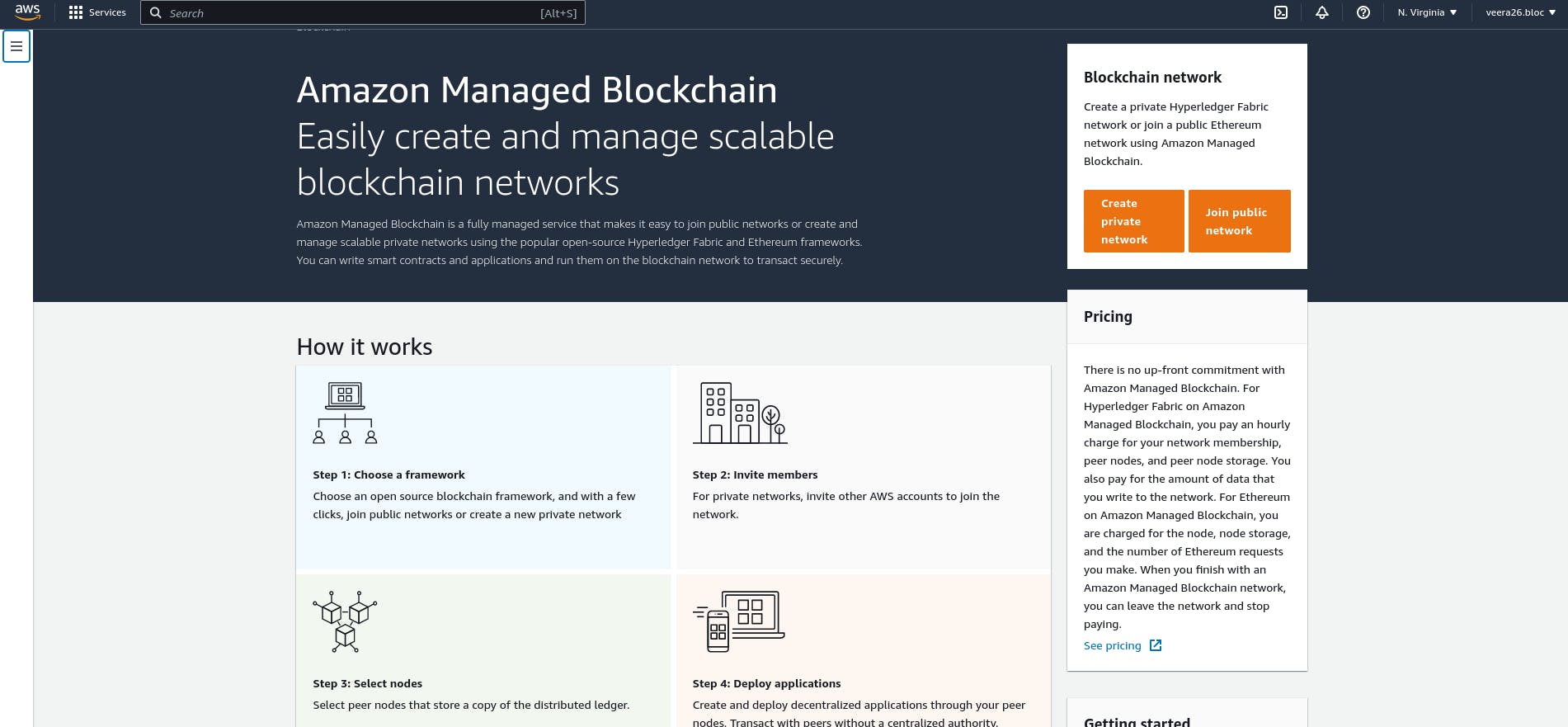
Select Hyperledger fabric option, version, network edition
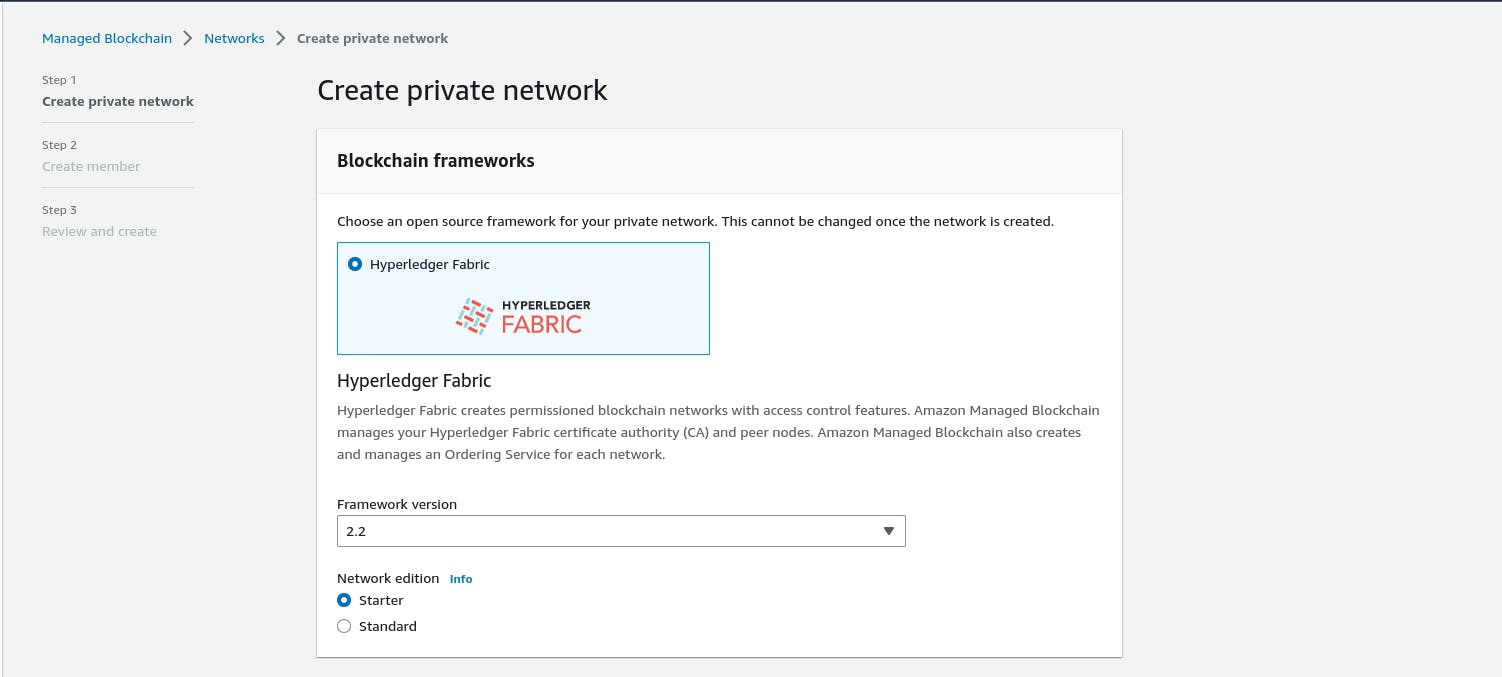
Add name, description, Voting policy (default) and tags
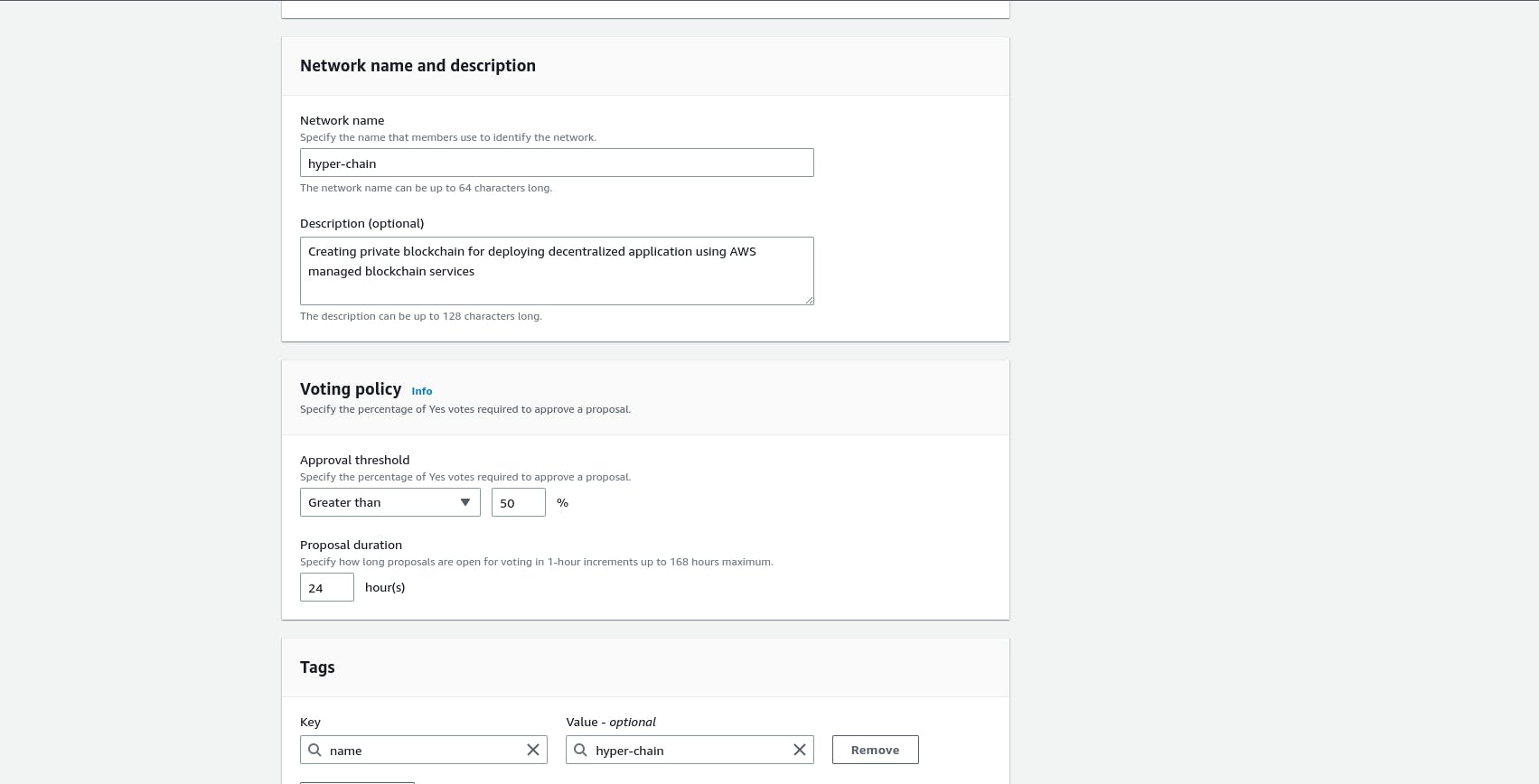
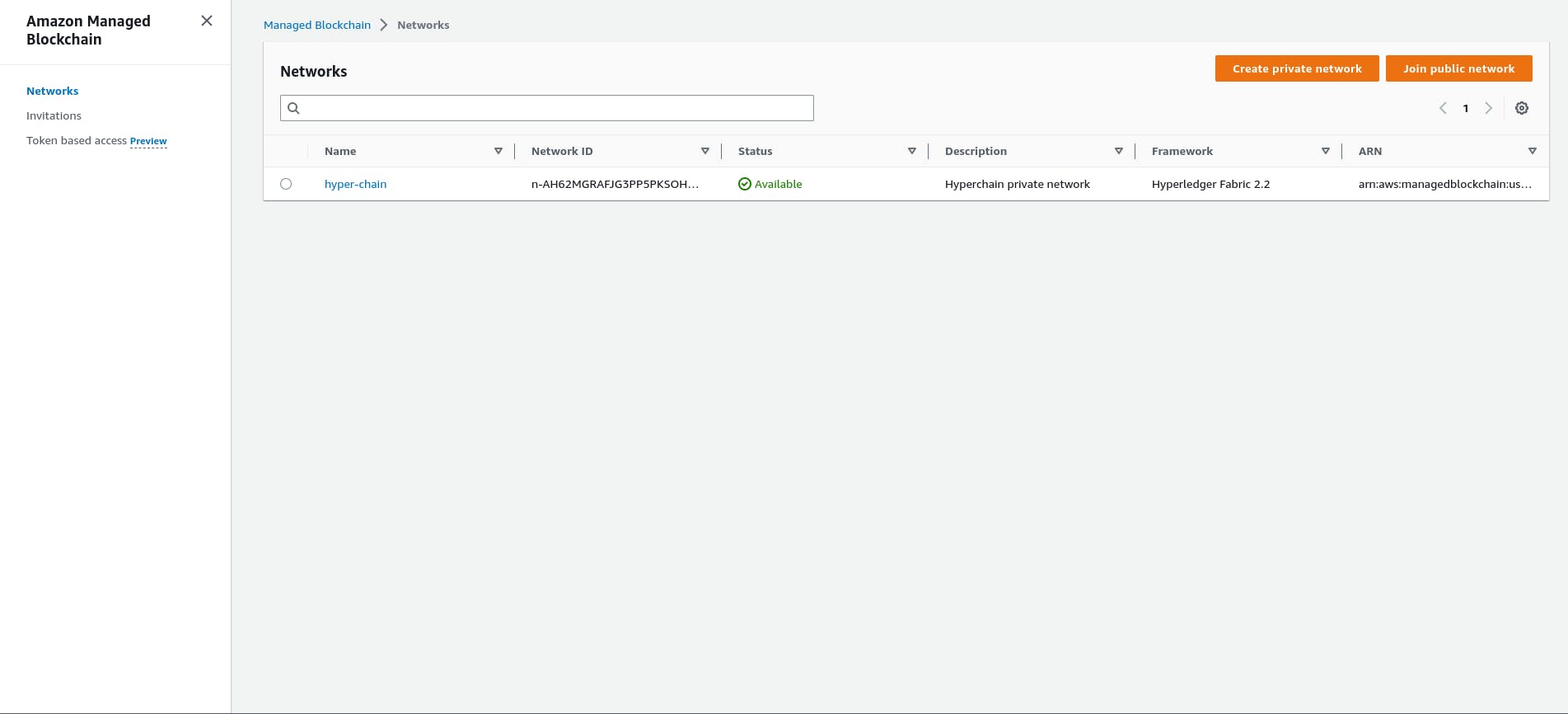
Now your chain is created successfully.
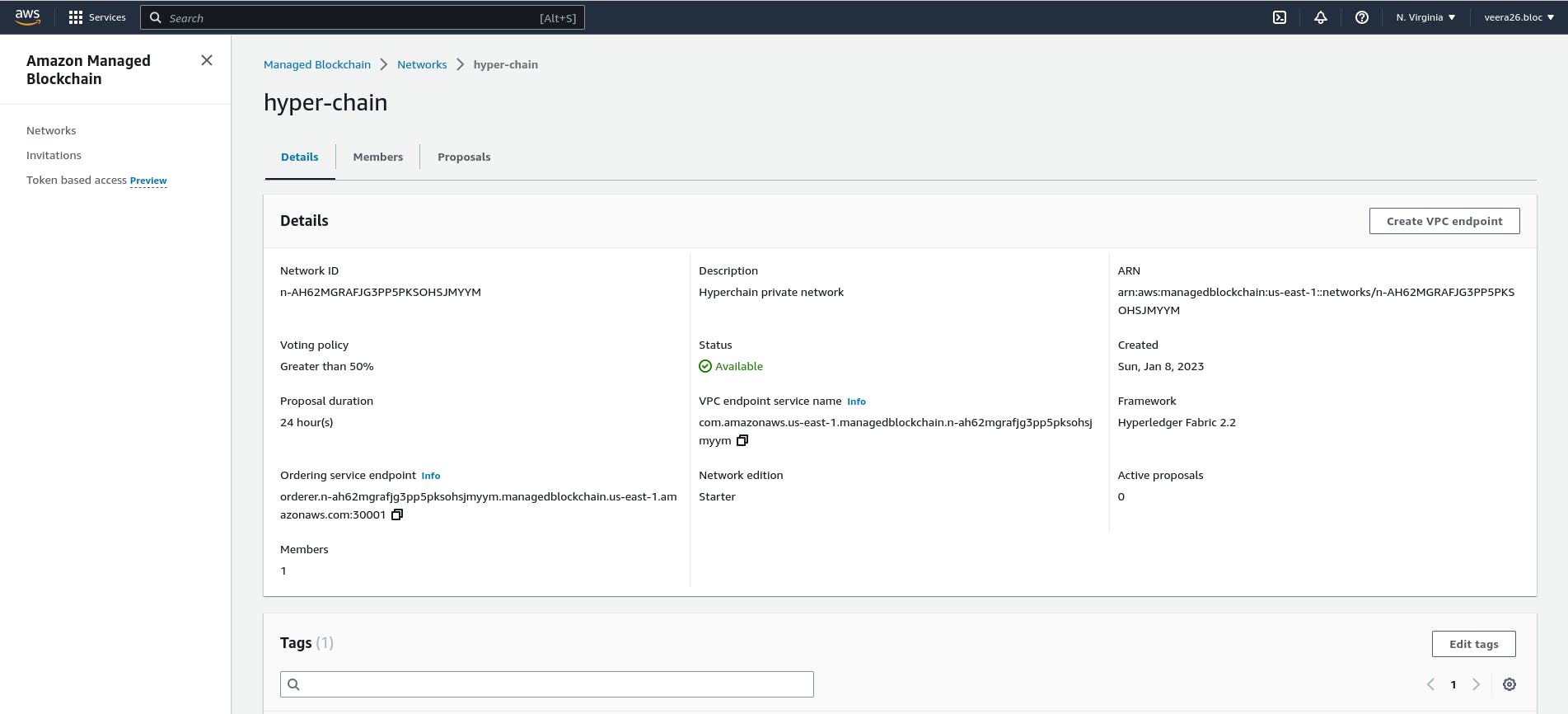
You can add an admin member and invite other members
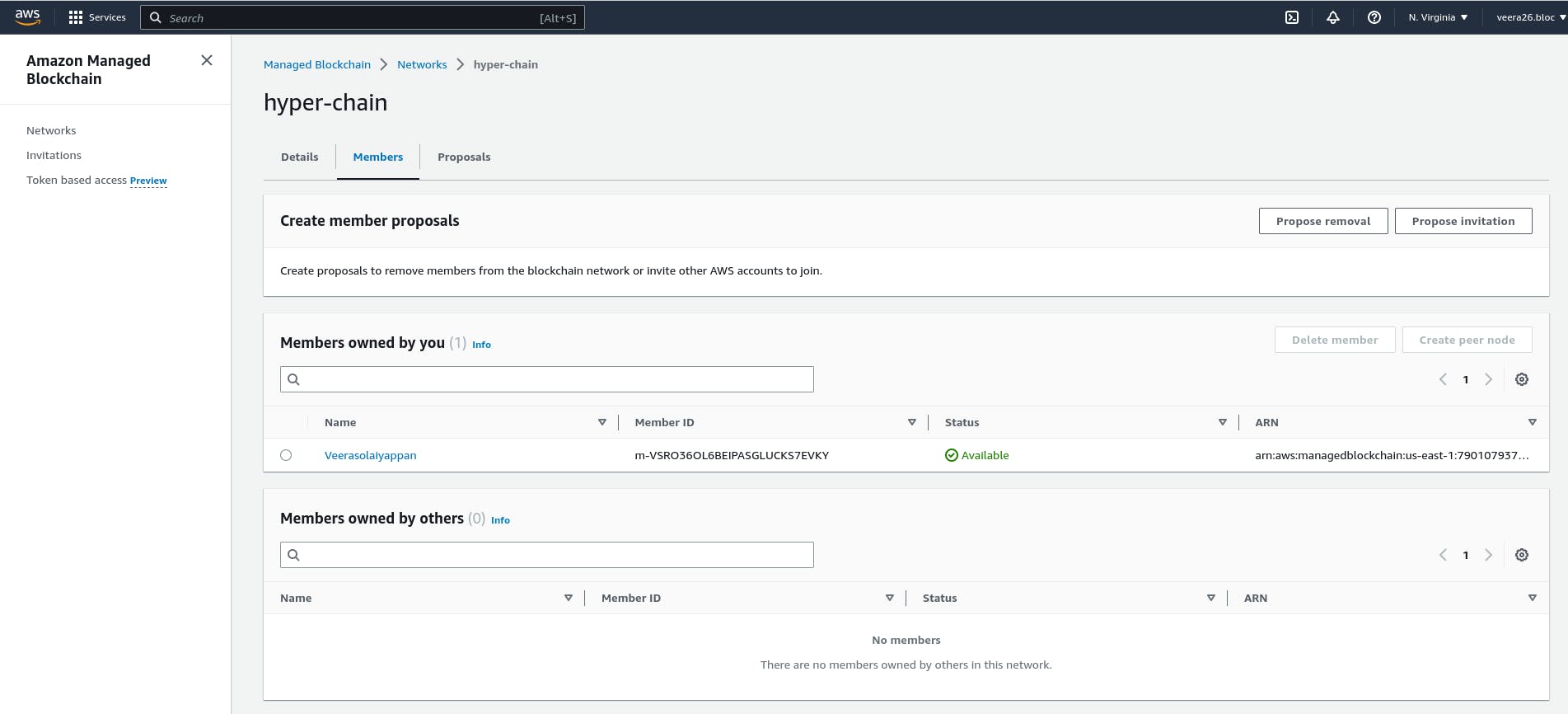
Here, you can create a new vpc endpoint to interact with your blockchain from your application
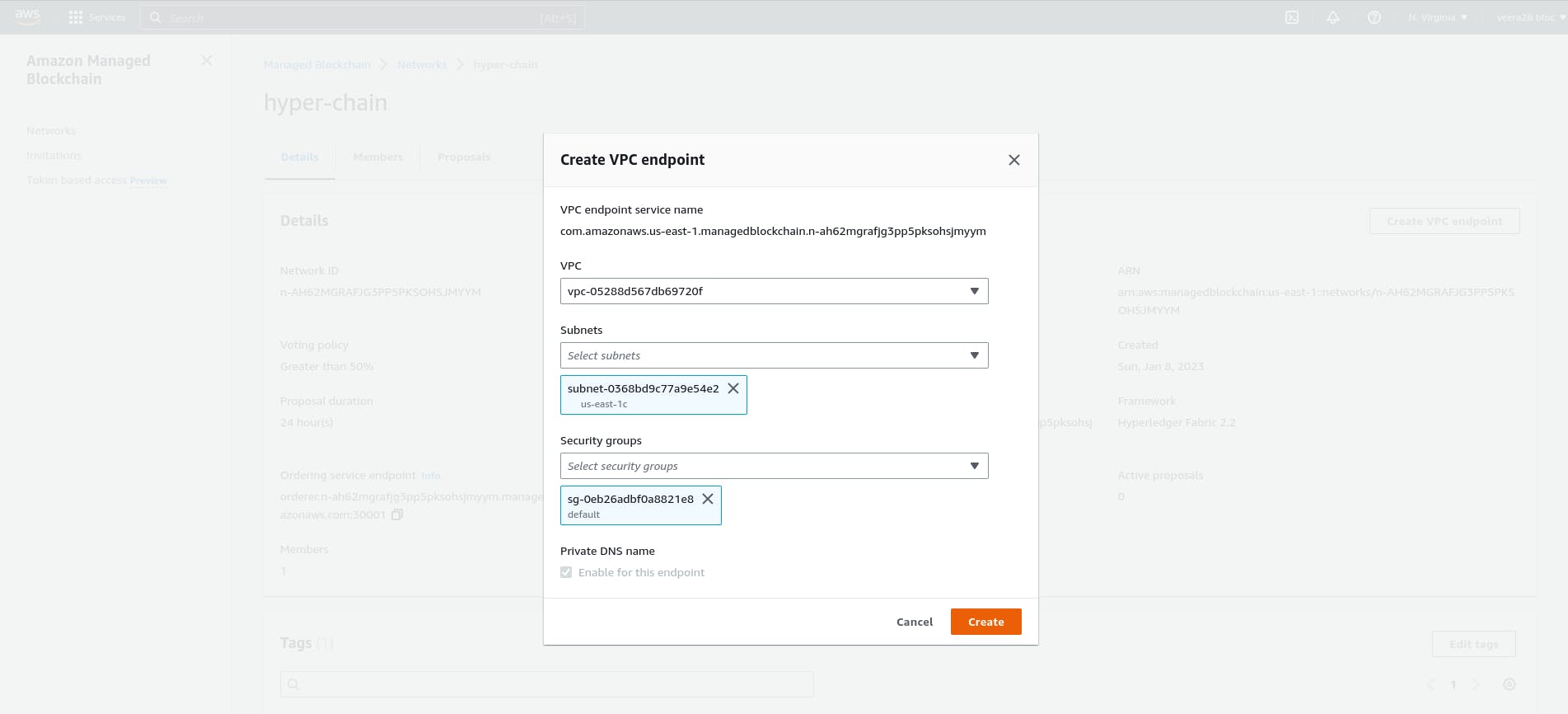
that's it guys. We created our private blockchain using AWS. Using this VPC endpoint we can interact with blockchain for deploying our smart contract and query details from blockchain
Hope you understood.
Okay. Let's proceed further to create a public blockchain node
How to create Ethereum Public Blockchain?
what is Ethereum public blockchain?
Ethereum is a decentralized blockchain platform that establishes a peer-to-peer network that securely executes and verifies application code, called smart contracts. Smart contracts allow participants to transact with each other without a trusted central authority. Transaction records are immutable, verifiable, and securely distributed across the network, giving participants full ownership and visibility into transaction data. Transactions are sent from and received by user-created Ethereum accounts. A sender must sign transactions and spend Ether, Ethereum's native cryptocurrency, as a cost of processing transactions on the network.
Select join public network option
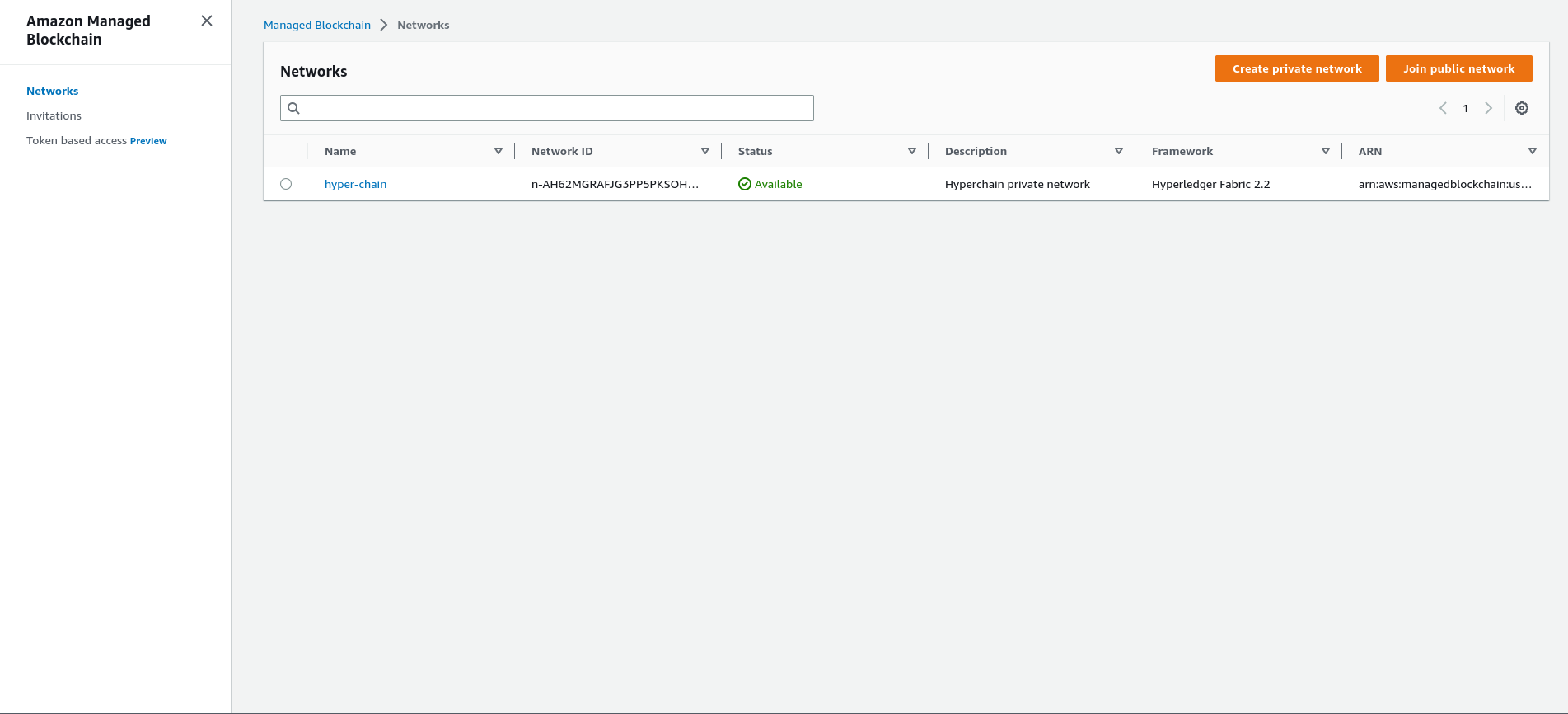
and select Ethereum Testnet Rinkeby network for testing purposes. Please go with Ethereum mainnet for production
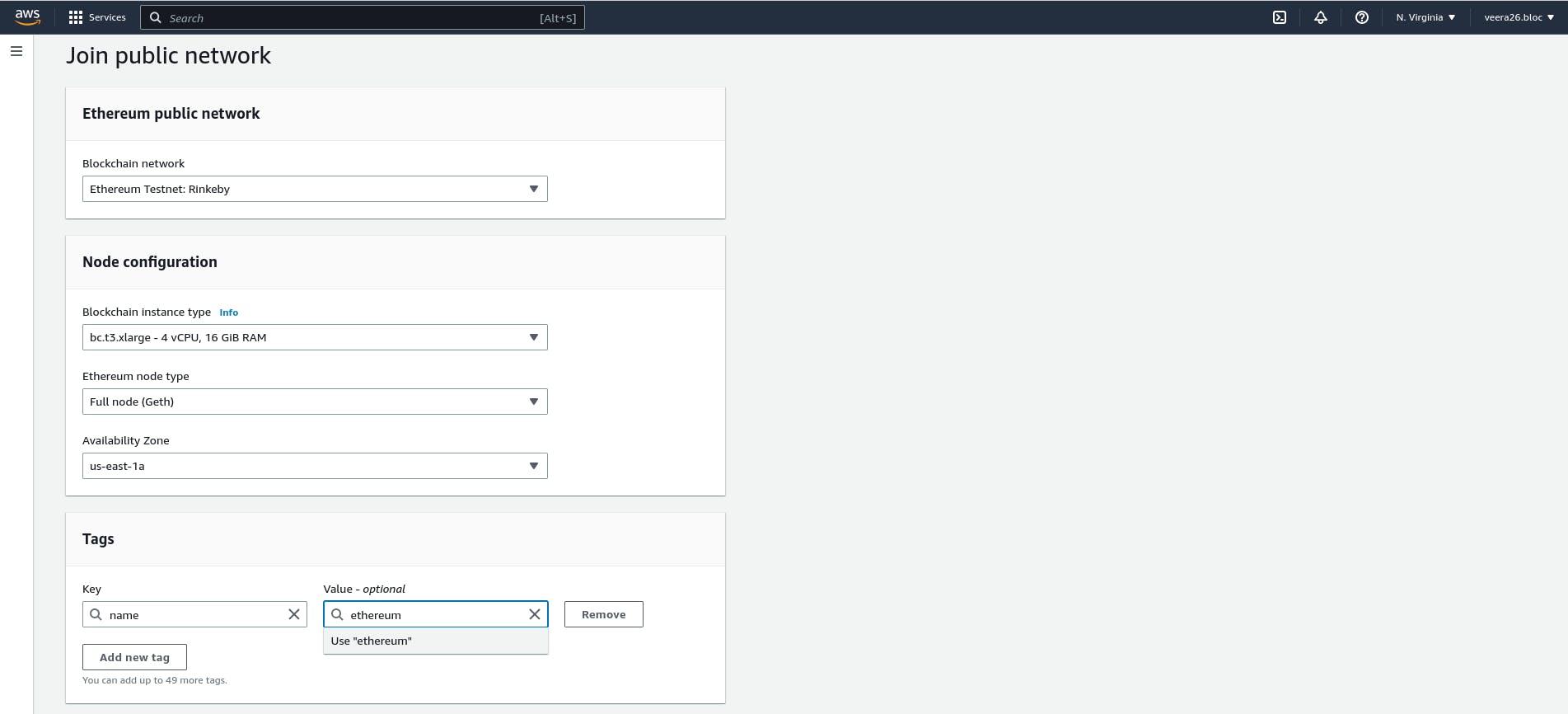
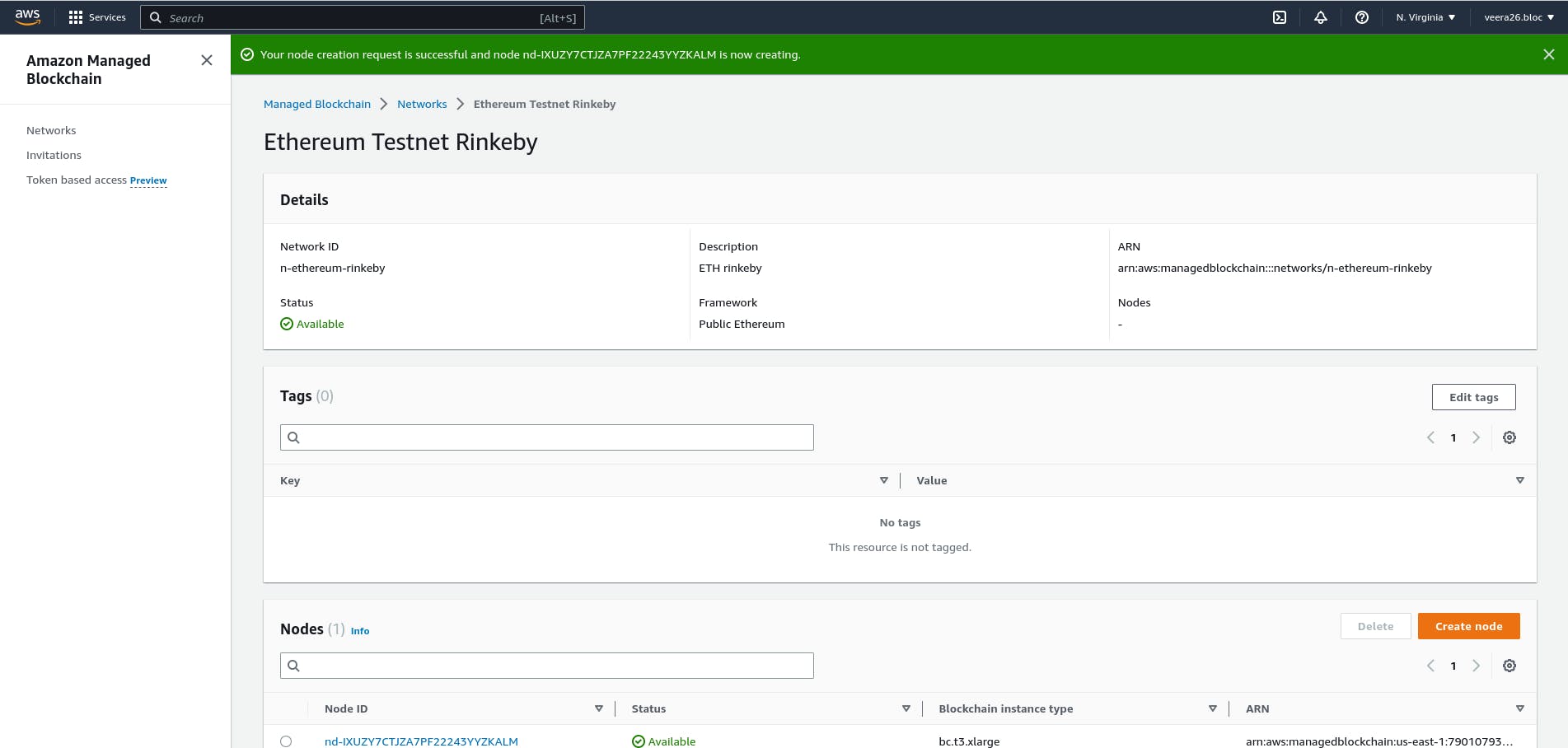
That's it guys. We created our public blockchain node also. We can deploy our smart contrat and interact with chain using Node ID.
Hope you get some insightful knowledge from this blog.
Keep Learning Keep Growing !!!

